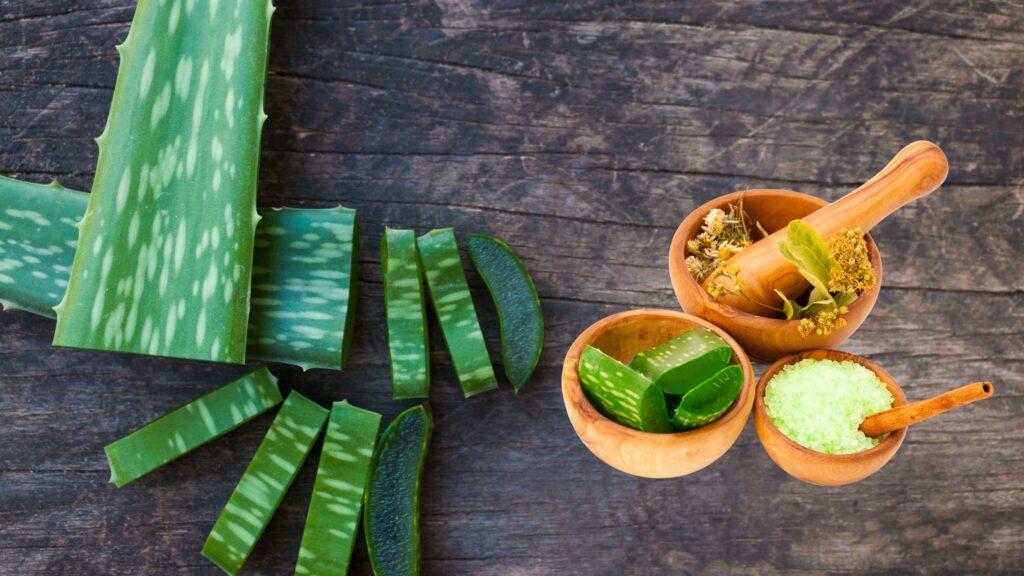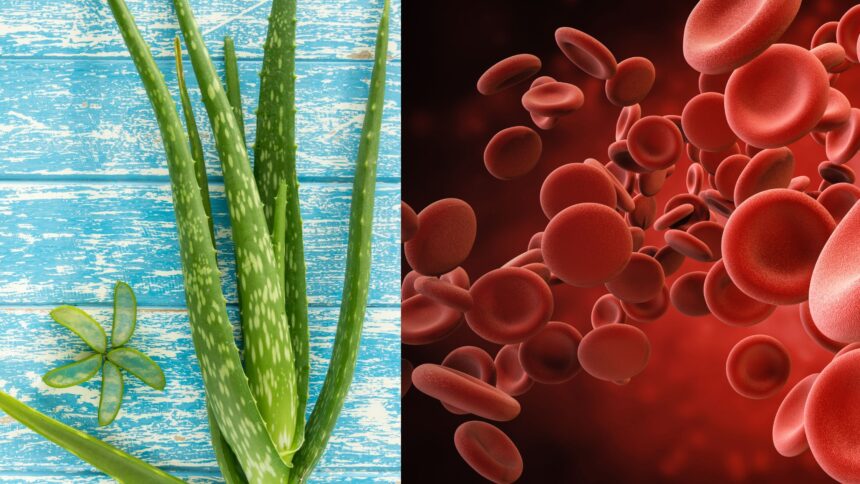We’ve all heard the claims that aloe vera is a potent healing plant, but can it truly “clean” our blood? As herbalists, we must dig deeper into how nature’s remedies work on a physiological level. Let’s explore the current science behind aloe’s potential effects on blood and overall wellness. I’ll explain what research shows about aloe’s interactions within our circulatory system and to what degree it may support healthy blood function when taken judiciously. My aim is to provide insight that empowers people to partner with plants for prevention and care.
Does Aloe Vera Clean Your Blood?
Yes, Aloe vera may lend support to overall blood health through various pathways. Its anti-inflammatory compounds help reset immunity from overactive levels. Plus, aloe’s antioxidants quench free radicals impacting vascular function. Together with the promotion of digestive and hydration balance, research indicates aloe vera aids circulation naturally over time. In the below, I discuss in detail what can do Aloe Vera in our Blood health.

1. Compounds that Soothe Inflammation
Modern research indicates aloe contains anti-inflammatory compounds called anthraquinones that safely modulate the immune response. Clinical trials found aloe reduced C-reactive protein levels linked to systemic inflammation. It also lowered cytokines that fuel issues from heart disease to digestive disorders when taken over eight weeks. By soothing overreactions throughout the body, aloe’s properties help “calm” overactive immunity and reset the inflammatory response network, which impacts blood in turn.
2. Mannan Polysaccharides as Immunomodulators
Aloe is rich in mannose-containing mannan polysaccharides renowned for their wound-healing abilities externally. Studies discovered these unique sugars also modulate immunity from within by messaging immune cell activity. Research links mannans to lower risks of conditions aggravated by poor immune function, like cardiovascular disease. They selectively signal white blood cells to change patterns in balancing ways, keeping circulation in better working order long-term.
3. Antioxidant Arsenal Against Oxidative Stress
Oxidative stress burdens the circulatory system, yet aloe flaunts a storehouse of antioxidants that neutralize its effects on blood vessels. Research finds aloe juice and gel concentrates contain substances like phenolic compounds, vitamins and enzymes able to quench free radicals implicated in hypertension, atherosclerosis and more. It helps mop up oxidative debris that can otherwise accelerate aging and disease at the cellular level throughout tissues.
4. Small Intestinal Detox Support
Research at the University of Maryland Medical Center found aloe may assist liver function through promoting healthy microflora balance in the small intestine. as the initial “blood filter” during digestion. Aloe’s prebiotic fiber and certain compounds favor beneficial bacterial strains in the gut that aid phase I/II detox processing and more thorough elimination of toxins via stool. This removal of irritants before they reach circulation lends further support to the concept of “blood cleansing” when aloe is one piece of a whole lifestyle approach.
5. Hydration and Mineral Balancing
Unknown to many, aloe gel contains helpful electrolytes like calcium, magnesium, manganese, copper, and other trace minerals vital to every body process – including circulatory health. Its gel matrix aids rehydration when consumed, delivering minerals directly into the bloodstream to assist electrical signaling, nutrient shuttling and elimination of wastes. Together with aloe’s other actions, this matrix supports optimal fluid balances to maintain blood volume and cell/organ function.
6. Potential Limitations
While studies point to potential benefits when used properly, aloe supplements should not be solely relied upon to “detoxify” or “cleanse” the blood in cases of serious illness or disease. More research on long-term safety is still needed. As always, prevention through lifestyle habits like hydration, nutrition, mindfulness and exercise prove most important guardian of healthy blood and immunity over time. Aloe vera gel may safely complement such practices yet requires individual monitoring for appropriateness in sensitive populations.
Conclusion
Overall, current research on aloe vera’s physiological impacts provides plausible evidence it lends support for better circulation and blood quality through multiple pathway interactions. Not through any quick “flushing” claims, but by helping maintain balanced immunity, hydration, oxidative status and micronutrient levels systemically over time – especially when accompanied by other healthy lifestyle factors. Future rigorous human trials could further strengthen understanding of this versatile plant’s impacts on wellness at both a cellular and whole-body level.




